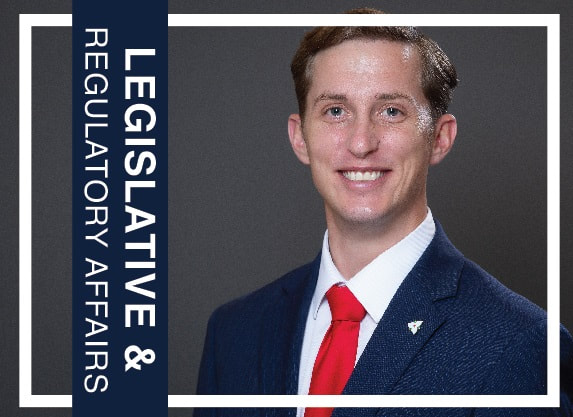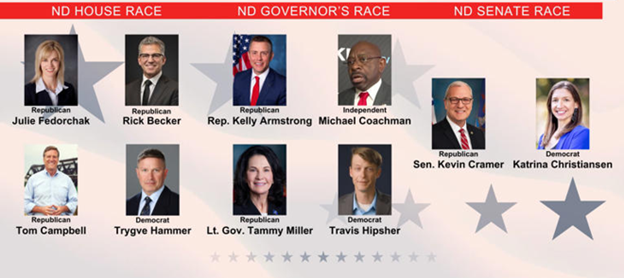|
by John Alexander, Director of Legislative & Regulatory Affairs
Breaking the Silence: The Dakotas' Crusade Against Mortgage Harassment In the heartland of the Dakotas, a troubling trend is emerging, one that sees the joy of homebuying marred by an onslaught of unsolicited communications. Members of a local credit union, let's call it Prairie Credit Union (PCU), are finding themselves in the crosshairs of aggressive marketing tactics, leading to a rising tide of concern and frustration among would-be homeowners. Imagine John Doe's dismay when, within moments of applying for a mortgage with PCU, his phone begins to buzz incessantly with calls and texts from unknown lenders. Some of these callers audaciously claim to represent PCU, advising John to reapply or adjust his rate lock under the guise of securing a better deal. The confusion and stress this creates are palpable, transforming what should be an exciting journey into a navigational nightmare through a sea of misinformation. Then there's Jane Doe, who, after submitting her mortgage application, receives a voicemail suggesting her agreed-upon rate is exorbitantly high and urging immediate action to secure a lower rate—a claim far removed from the truth. Such deceptive practices not only sow doubt but also erode the trust painstakingly built by credit unions like PCU. The consequences of these invasive tactics are not merely emotional; they have tangible impacts on the credit union and its members. Consider the case of an individual who, overwhelmed by the non-stop solicitation from other institutions, decided to withdraw their mortgage application altogether. This decision is not taken lightly; it represents a significant loss for both the member, who must start their homebuying journey anew, and PCU, which loses the opportunity to support a member's dream of homeownership. The stories of John and Jane are not isolated incidents but examples of a widespread issue affecting countless members. Some, like a borrower who received over 50 calls in just two days, are targeted based on their creditworthiness, with those boasting higher credit scores particularly besieged by solicitations. It's a predatory strategy that leaves members feeling vulnerable and exploited. In response, PCU has taken proactive steps to shield its members from these unsolicited advances, including removing contact information from applications and educating borrowers about the potential for such calls. Yet, despite these efforts, the calls persist, underscoring the need for a more systemic solution. This brings us to a critical juncture as we prepare for the GAC next week. On the 6th of March, we're set to champion the Homebuyers Privacy Protection Act/The Home Privacy Act in Washington, D.C. These bipartisan bills promise to stem the tide of unsolicited communications by prohibiting the sale of mortgage "trigger leads" without consent and limiting pre-screened credit offers to those with a preexisting relationship with a financial institution. It's a legislative push that seeks to restore not just privacy but peace of mind to homebuyers across the Dakotas and beyond. As the Dakotas rally to make their stance known to legislators, the issue at hand transcends annoyance; it's about preserving the integrity of the homebuying process and protecting the financial well-being of credit union members. The passage of these bills could mark a significant victory in the fight against predatory marketing tactics, ensuring that the dream of homeownership remains untarnished by undue stress and confusion. For credit unions like PCU and their members, it's a battle worth waging, one that champions consumer rights and underscores the value of privacy in an increasingly connected world. To learn more about the bills at hand, use these links: H.R. 7297 S.3502. A Unified Voice for Change: The Dakota Delegation's Historic March on Washington As I stand on the brink of what promises to be the largest Governmental Affairs Conference (GAC) in history with over 5,000 credit union members gearing up to descend on Washington, D.C., I can't help but feel a sense of immense pride and responsibility. Together with 30 passionate members from the Dakotas, we're not just attending another conference; we're part of a historic movement. A movement united by strength, dedication, and the shared goal of advocating for pivotal changes that will shape the future of financial services. Our delegation from the Dakotas is more than ready to leverage this historic moment. We carry with us an agenda that's not only forward-thinking but deeply rooted in the core values of the credit union movement: community, collaboration, and a steadfast commitment to the financial well-being of our members. It's about protecting and enhancing access to essential financial services that are indispensable for the daily lives and emergencies faced by our members. One of the significant issues we're taking to Washington is the proposed restrictions on overdraft services. These services are not merely a convenience; they're a lifeline for many of our members who face unexpected financial emergencies. Our Dakota credit unions have led the charge in refining overdraft programs to offer more compassionate and flexible solutions. We've shown that it's possible to adapt and better meet the needs of our communities without the need for restrictive regulations. This is the credit union philosophy in action: member-first service. We're also setting our sights on increasing congressional oversight of the Consumer Financial Protection Bureau (CFPB). We believe that greater accountability and a more diverse range of perspectives in the bureau's decision-making processes are crucial for a balanced and fair financial landscape. Our aim is to foster an environment where decisions are made with the best interests of all parties in mind. Supporting veteran entrepreneurs is another critical part of our legislative agenda. The Veteran Member Business Loan Act is not just a piece of legislation for us; it's an opportunity to significantly enhance the support we can offer to veteran-owned businesses. It's about acknowledging the unique challenges they face in accessing capital and recognizing the invaluable contributions they make to our communities. Yet, the issue that perhaps most starkly highlights the need for our advocacy is our opposition to the Credit Card Competition Act. We believe this proposed legislation threatens to undermine the security of our payment systems, expose our members to greater risks of fraud, and limit consumer choice. Instead of further regulating interchange fees, we're advocating for nationwide data security legislation that would more effectively protect consumers' data. As the GAC unfolds, our efforts in Washington, D.C., are a testament to the principles that have long guided the credit union movement. We're not just representing the interests of our local communities; we're contributing to a national conversation on how to create a more equitable, secure, and thriving financial future for all credit union members. In this moment, as I stand with my fellow Dakotans, ready to advocate for policies that protect consumer interests, ensure privacy and financial well-being, and support the growth and sustainability of our communities, I'm reminded of the power of unity and the impact we can make together. We're not just participants in this historic gathering; we're pioneers, ready to challenge the status quo and advocate for a better future for our members and our communities. Silent Storm: Lt. Governor Tammy Miller's Early Campaign Gambit Shakes Up ND Politics As North Dakota's political season heats up, candidates are gearing up for the race, but the airwaves remain surprisingly quiet on the political advertisement front. Lt. Governor Tammy Miller breaks the silence, launching an early ad campaign, highlighting her outsider status, and emphasizing a well-thought-out communications strategy. While others hold back, waiting for the right moment to launch their campaigns into the public eye, political analysts watch closely, predicting a shift in strategies as candidates navigate the changing landscape of voter engagement. Find the original article here. As always, feel free to contact me with any advocacy concerns. Comments are closed.
|
The MemoThe Memo is DakCU's newsletter that keeps Want the Memo delivered straight to your inbox?
Archives
July 2024
Categories
All
|
|
Copyright Dakota Credit Union Association. All Rights Reserved.
2005 N Kavaney Dr - Suite 201 | Bismarck, North Dakota 58501 Phone: 800-279-6328 | [email protected] | sitemap | privacy policy |






